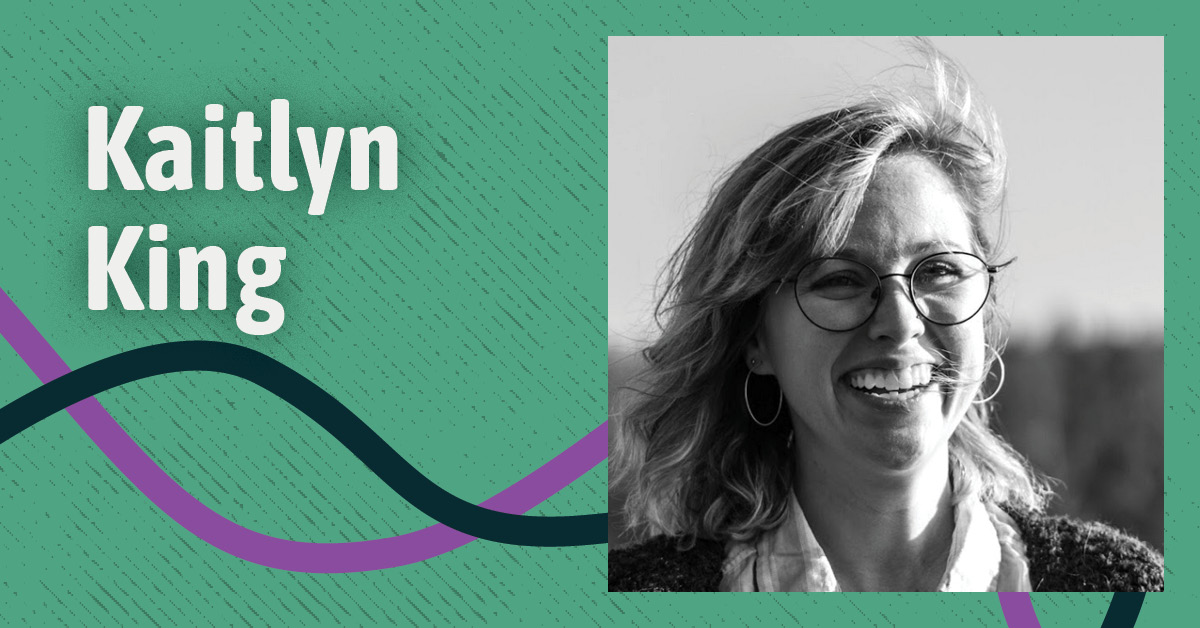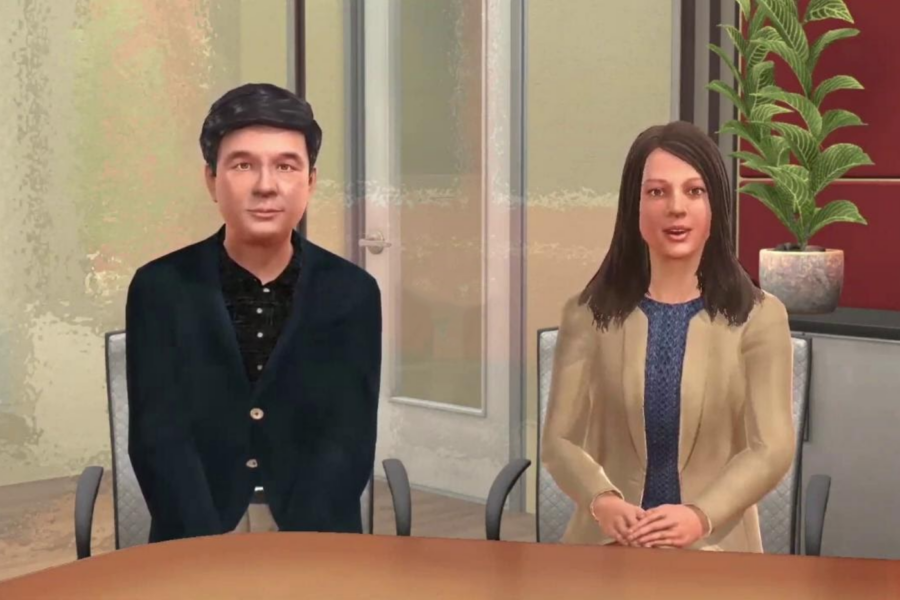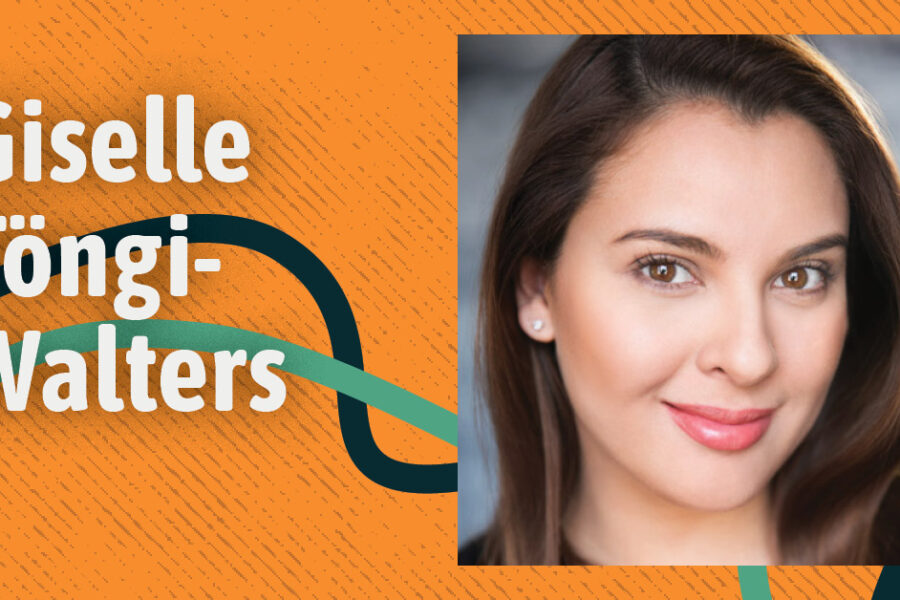There is a common thread that connects Antiochians together: a passion to support, advocate, and empower others. Although the journeys are different, the passion and pursuit for social justice remains the same. One recent Antioch alum, Kaitlyn King, is pursuing social justice in her own way, through therapy and art—and the powerful ways they can intersect.
Just a few weeks ago, King graduated from the MA in Couple and Family Therapy program at Antioch University Seattle. She is now a licensed associate family therapist and a provisionally licensed art therapist whose passion is combining theory with intuitive art-making. This powerful intermingling fosters healing and creative expression in a clinical setting.
But even as she accomplishes this milestone, King has bigger dreams—specifically of empowering the communities she is most passionate about serving in a welcoming space with a home-like feel, inclusive to all who crave a safe and collaborative space to create. This dream is the blossoming of a life of searching for community, mission, and the freedom to pursue passion. This is Kaitlyn King’s journey to finding healing and acceptance through art therapy—and the sharing of this gift with others.
Southern Beginnings
King’s mission for social justice began in Auburn, Alabama, where she was born and raised. Growing up snugly planted in the Bible Belt, there was not a lot of space for King to embrace her liberal views. Negative racial attitudes towards people of color were common, and there was often open discrimination against the LGBTQ+ community and other marginalized groups that didn’t fit the conservative, religious mold.
Nonetheless, King developed her own liberal views in private, which she tempered against the conservative beliefs she was raised with. Conflict simmered beneath the surface. On a deeper level, she always knew that she didn’t agree with conservatism and discrimination.
Yet, she couldn’t help absorbing some of what her environment was committed to teaching her. “It’s a muscle you have, a micro-aggression,” King says, “where you don’t think you’re being racist.” From early in her life, King struggled internally against these ways of thinking. She saw how this influence grows stronger the longer you are exposed to that environment. King realized there was another muscle she needed to stretch in order to grow in awareness. King knew that venturing outside of Auburn was the best way for her to find a community that encouraged a mindset of greater awareness and acceptance.
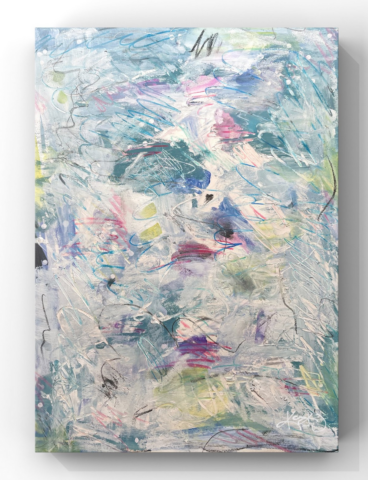
After graduating from Auburn University in 2016, King was working as a barista at Toomer’s Coffee and led an art therapy group in East Alabama Medical Center’s psychiatric inpatient unit. She also traveled back and forth to Atlanta while working for Christian youth mission camp, M25, whose goal is to serve the homeless and marginalized.
King’s work with M25 placed her in various homeless shelters throughout Atlanta where she met and found herself connecting with many of the teens in the shelter system. She saw firsthand how seriously flawed and broken the system was, especially for marginalized communities like the LGBTQ+ and people of color who were largely represented. As her friendships and bonds with many of the teens grew, she discovered more so how deeply they were suffering because they didn’t have access to the life-saving resources they needed. King refused to turn away from those who so clearly needed support.
“I just wanted to find my place with my convictions,” says King. “My view is: This is wrong. What can I do?”
Acquiring Tools for Advocacy At Antioch
It became obvious to King that her mission needed to be advocating and empowering these LGBTQ+ teens who had become near and dear to her heart, and she saw that becoming a therapist was the best way that she could do this. The teenage years are a crucial age when having support and resources can change the trajectory of their lives. As a therapist, King could provide some of those resources and support.
“I want to help people realize that you belong in this world. That you are worthy,” she says. “I just want to do my part. I know that I can’t fix it. I just know if I can be one person that’s supportive to my client, that can save their life. I can advocate and point them towards resources to get them out of that system.”
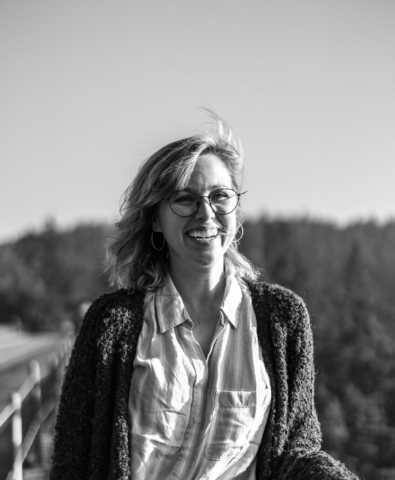
King decided to pursue a graduate degree in relational art therapy to help aid her in her fight. She had majored in art therapy as an undergraduate, and she is a visual artist and painter herself.
She chose Antioch University Seattle’s masters program in Couple and Family Therapy with a specialization in Art Therapy, and it has been a perfect fit. She loves how its mission is rooted in social justice, and there is a strong sense of community which was a major plus for her as a student relocating to a new city.
“Community fosters your passion,” King explains. “It helps to sustain you. It supports you.”
This unwavering support at Antioch has allowed King the freedom to be her true self, fully immersed in her passions. In Seattle she has found less struggle and conflict around her liberal views. And from the moment of her arrival, she’s had a supportive community and mentorship through Antioch faculty.
“Students seemed inspired, and faculty were accessible, passionate about their jobs, even going as far as connecting with students outside of class, and were very responsive to emails,” King says. “Faculty was always willing to help and were attentive to my needs unlike any school I’ve ever been to.”
Providing Therapy For Teens
As a requirement for her degree, King completed an internship at Friends of Youth, a Seattle non-profit that provides support and resources to local youth. There, she worked mainly with teens and their families, helping them to process their emotions around isolation. Many of her clients were deeply affected by the seclusion many of us felt during quarantine this past year. Although sessions were held remotely through telehealth, their time together was meaningful and impactful.
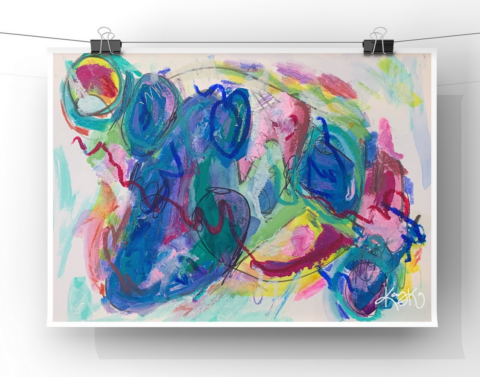
As King has built solid relationships with her clients, she’s also developed her own style and mission as a therapist. She focuses on creating a safe space—a space where there is trust, empathy, and support. Fusing art into therapy sessions, she teaches her clients to work spontaneously, using colorful brush strokes in the place of words to express their feelings. The process is freeing—there are no rules or restrictions as to what ends up on the canvas. The goal is to release whatever emotions that need to be released.
Clients are sometimes critical of their finished work, explains King. To them, the end result might not look like “art.” King reassures her clients that first, “seeking help is brave” and second, “it’s about the process, not the product.” She encourages her clients to remain curious around their art and open to discovering how the process of creating can guide them through their journey to internal healing.
Her work as a therapist is anchored by her mission of service to others. “My main mission as an art therapist is to help people know that you don’t have to be an artist to make art,” King explains. “You don’t have to be perfect in knowing technique to express yourself. It might not look perfect but it’s still powerful. It still has purpose in helping you understand yourself and your situation.”
The House that King Built
Creating art is an outlet that King uses as a form of self-care in her own life. She’s inspired by water, being close to it in every way. King renders her abstract art primarily using watercolors and pastels.
She views art as a symbol, a representation of what your creative self needs you to know. “Art is something your creative self needs to process, get out, and externalize,” King says. “Let’s be curious and discover that.”
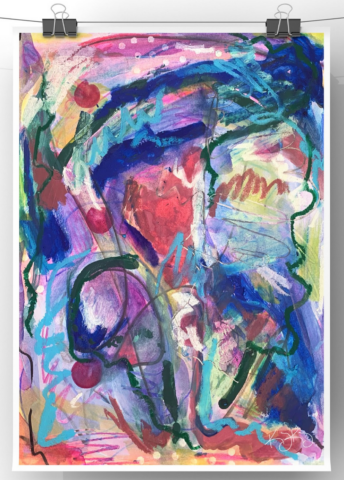
This process of discovery is carried out today with King’s clients, and in the future it will take an even bigger form. King dreams of someday returning to the South and opening up a creative arts center. It would be an inclusive space, set in a house, where LGBTQ+ teens and all others who are seeking a welcoming and supportive community can gather to make art, connect with services, and find community. King is adamant that a safe space is key for expression, acceptance, and healing. Our surroundings stimulate our creative side while intuitive art making allows us to process through emotions.
King envisions every room buzzing with creativity. Afternoon programs and mental health services are based on art, drama and other expressive holistic therapies. The center would be a vibrant resource hub where all can hang out and receive services from like-minded people who accept each other’s differences.
Art will be the main thread that binds this community together. After all, it is a pathway to healing and learning to accept those things that one cannot change—a way of embracing those parts that make you unique.
Like she has done for herself, King wants to empower others to work through their emotions. Healing can be discovered through art. Acceptance can be found through art.

